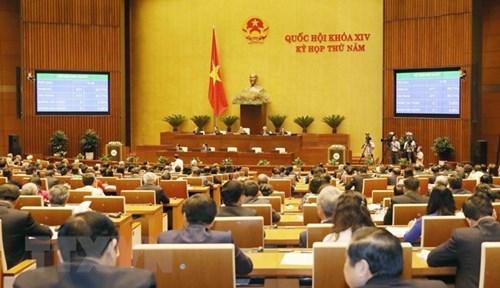The bill was discussed by legislators at the National Assembly’s fourth and fifth sessions before it is scheduled to be approved at its sixth session later this year.
This is a very important draft law and expected to create a legal foundation for preventing and combating corruption more effectively in the coming time. The contents mentioned in the draft law are matters that affect aspects of the social-economic life and receive much attention and expectations from the people.
    |
 |
|
The National Assembly’s fifth session |
During the NA’s fifth session from May 21 to June 15, the lawmakers pointed out the occurrence of corruption in the non-state sector, saying that it has caused adverse impacts on the healthy competition as well as the investment and business environment, and hindered the effectiveness of the anti-corruption work in the state sector.
Deputy Mai Thi Phuong Hoa said “corruption in the private sector affects not only the righteous activities of organizations and enterprises in the sector but also those in the public sector.”
In some cases, the private sector is the place where money laundering occurs or is the “backyard” of corruption activities in the public sector, so the anti-corruption work will not be effective if the private sector is ignored, she stressed.
Corruption in the non-state sector affects the whole national economy and consumers, Hoa noted, adding that it also makes foreign investors hesitant as they cannot predict unofficial costs that may arise during their business process, thus indirectly slowing the development of the national economy.
Some other deputies said expanding the scope of the draft revised Anti-Corruption Law also ensures compliance with the Penal Code’s provisions on criminalizing acts of corruption, bribery and taking bribes of those holding key positions and power in non-state enterprises and organizations.
Lawmakers have also raised their concerns over regulations related to the dishonest declaration of assets or the declaration of additional assets and incomes without reasonable explanations.
Most of the legislators agreed with the Government’s measure, which stated that tax agencies will be responsible for collecting personal income tax of persons whose asset and income declarations are unclear.
Source: VNA